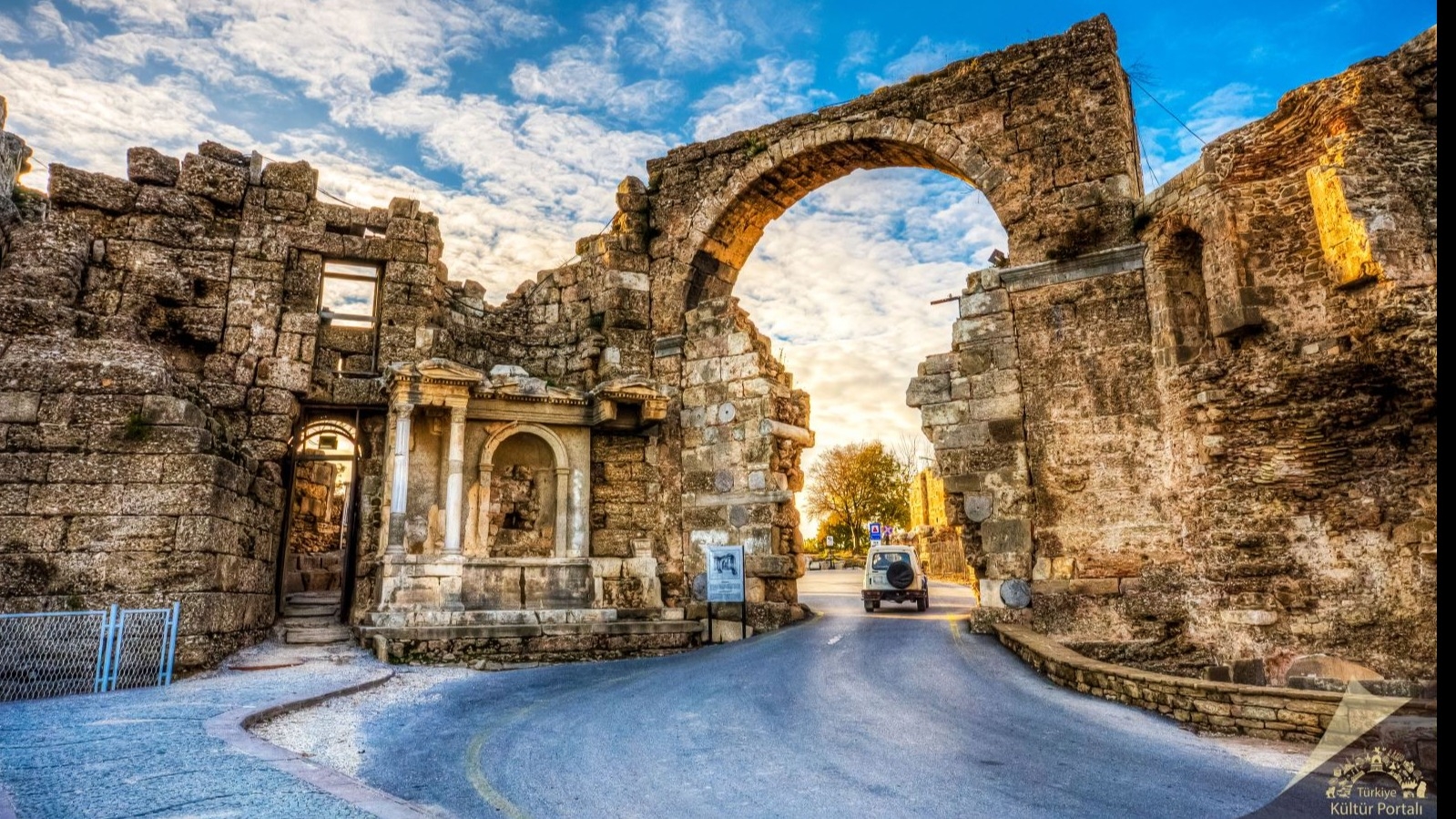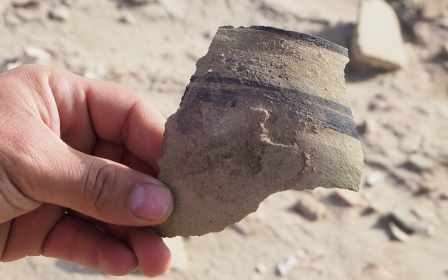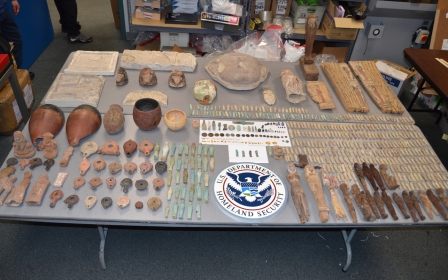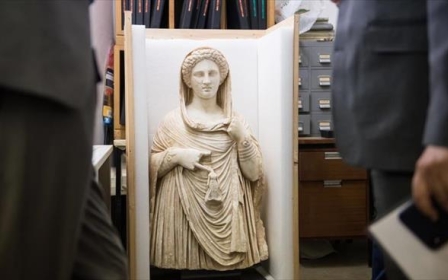Turkey: Belgian couple accused of 'smuggling' historical artefacts

A Belgian couple is facing a fine or potential prison sentence on suspicion of smuggling archaeological artefacts from Turkey after three stones were found in their suitcase while returning home from holiday.
Kim and Warre Mergits from Antwerp said they found the stones on the beach and on the street while vacationing in Manavgat, a town in the coastal Antalya province, and wanted to bring them home as souvenirs.
They were stopped by airport security on 16 September. "A woman came up to us and asked if we had salt or minerals with us," Warre told VRT Radio 2 Antwerp. "I said no but said that there were a number of stones in our suitcase. We often take them with us as decoration for my aquarium."
The pair were detained by the airport police, and were released on the condition that they did not leave the country and checked in at a police station every week.
The stones were subsequently sent to Antalya museum for examination and Antalya's Provincial Directorate of Culture and Tourism determined that the stones had indeed been of historical value.
New MEE newsletter: Jerusalem Dispatch
Sign up to get the latest insights and analysis on Israel-Palestine, alongside Turkey Unpacked and other MEE newsletters
In a written statement, officials said that one of the stones was "a piece of architectural decoration with two stylised rosettes on it" while the other two were parts of a marble floor.
"A preliminary report was prepared stating that the pieces in question were prohibited from being taken abroad because they fell within the scope of Law No 2863 [on the protection of cultural and natural assets] because of their qualities," the statement continued.
The Belgian foreign affairs ministry explicitly warns on the Turkey section of its website that "It is strictly forbidden to export antiquities, minerals or objects found locally (stones for example), even if they do not show any cultural-historical value. Heavy sanctions are attached to this."
The couple are currently staying in an apartment in Antalya because they are banned from leaving the country. According to BBC Turkey, the court process may take up to two months and the couple face a prison sentence ranging from one to five years and a fine of up to 18,000 Turkish lira ($657).
'Don't touch our stones'
The story and its framing by international media has caused outrage online among Turkish citizens despite the court not having reached any conclusion about the couple's motivation.
A post by SkyNews on the platform X, formerly known as Twitter, stating that the Belgian couple "took" stones from Turkish beaches and streets and was then "accused" by Turkey as having stolen them, has particularly drawn criticism from Turkish users, who say the report paints the Belgian couple as innocent and the Turkish government as unreasonable.
Several users have also drawn comparisons between the case and controversy surrounding the British Museum, which faces calls to return artefacts many argue were stolen during Britain's colonial era.
"Just like the 'stones' Britain 'took' from Egypt and Anatolia to decorate the British Museum. Exemplary journalism", one user commented.
In a statement to public broadcaster VRT, Belgian archaeology professor Ralf Vandam underlined that countries in the Mediterranean, not only Turkey, are sensitive about historical artefacts because of the rich heritage of the region.
"The chances of finding something of archaeological value in Turkey are very high. Everything you find there is in principle the property of the Turkish government. It is no different in our country."
It is not the first time that tourists have faced prosecution for allegedly removing artefacts from Turkey and other countries in the Middle East.
Last year, a court case in Iraq left two foreign tourists potentially facing the death penalty for alleged antiquities smuggling after collecting pottery shards as souvenirs. Though avoiding the death penalty, one of the tourists received a 15 year prison sentence.
Middle East Eye delivers independent and unrivalled coverage and analysis of the Middle East, North Africa and beyond. To learn more about republishing this content and the associated fees, please fill out this form. More about MEE can be found here.




